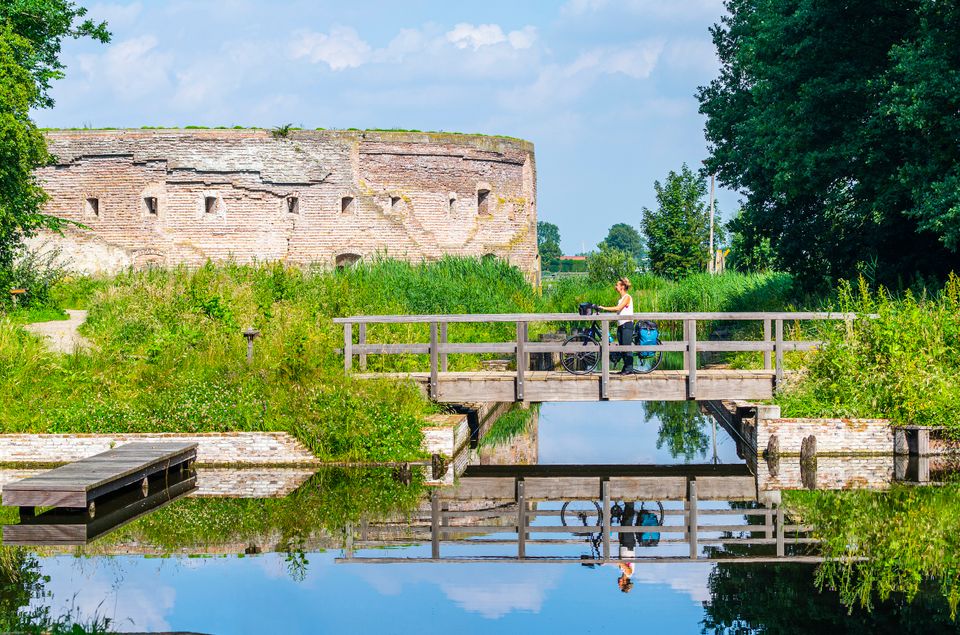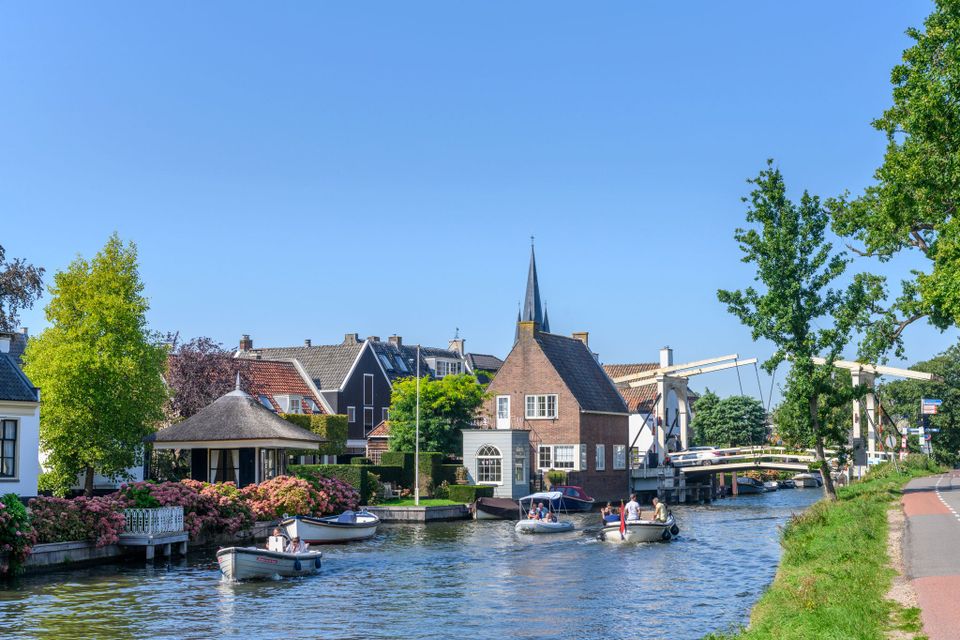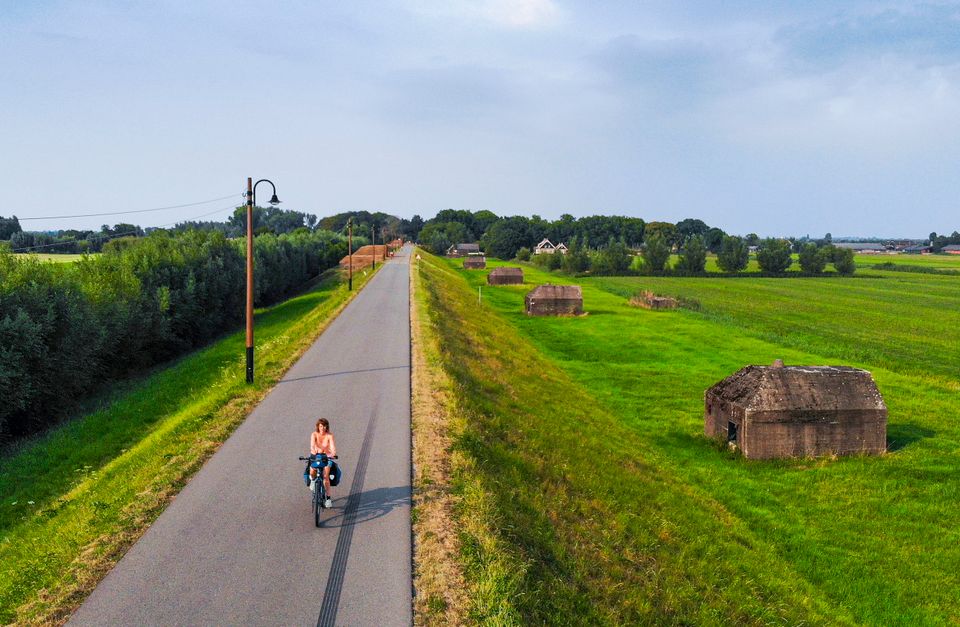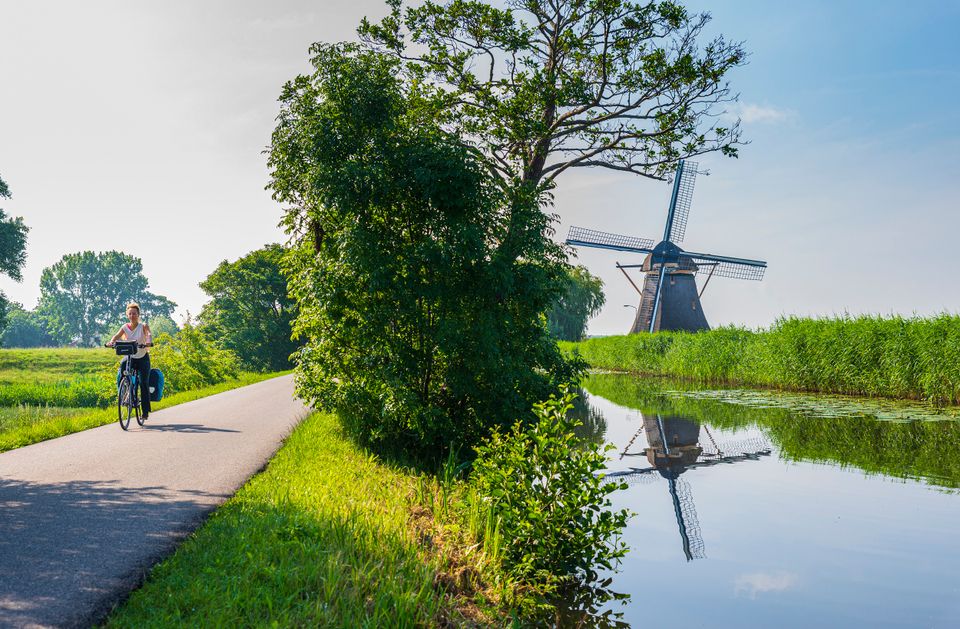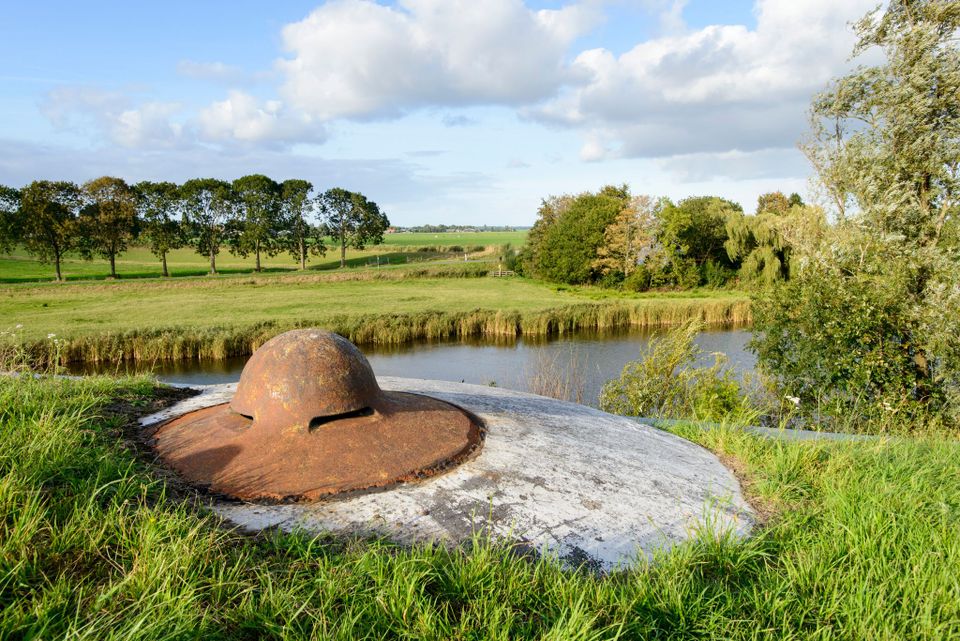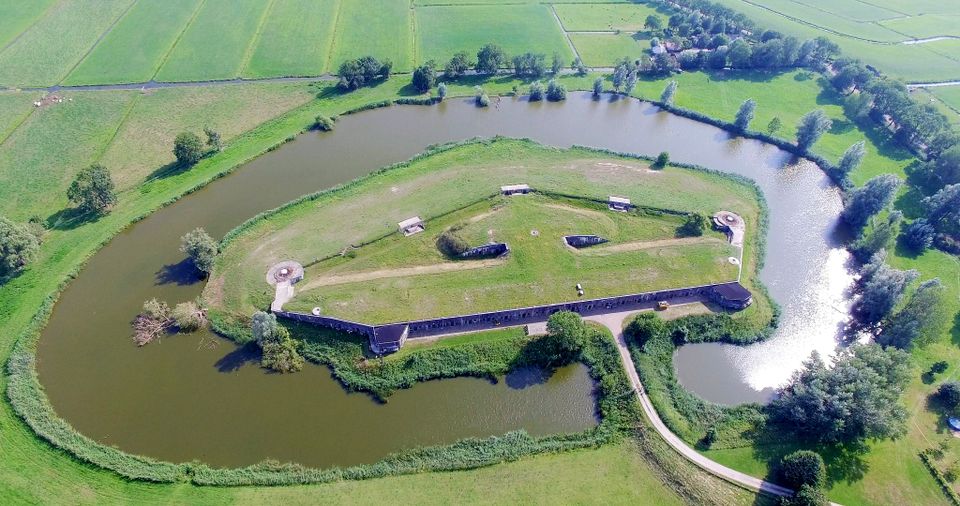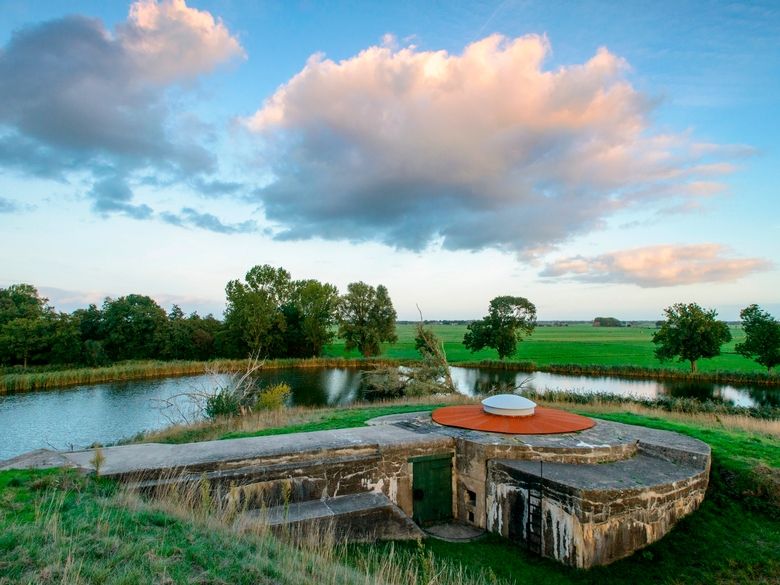Dutch Water Defence Lines Weekend Tour
This weekend tour begins in Weesp and passes by numerous forts of the Dutch Water Defence Lines. You’ll cycle through an incredible water-rich landscape that includes the Loosdrechtse, Ankeveense and Vinkeveense lakes and the Vecht river.
Three Weekend Tours
Go on a journey of discovery across a distinctive military landscape and cycle through up to five defe…
This weekend tour begins in Weesp and passes by numerous forts of the Dutch Water Defence Lines. You’ll cycle through an incredible water-rich landscape that includes the Loosdrechtse, Ankeveense and Vinkeveense lakes and the Vecht river.
Three Weekend Tours
Go on a journey of discovery across a distinctive military landscape and cycle through up to five defence lines and 2,000 years of military history. During three weekend tours ranging from 100 to 125 kilometres that largely run through the Province of Utrecht, you’ll enjoy a mix of stunning natural scenery, robust fortresses, wide rivers and beautiful terraces. The tours run along marked cycling routes and are therefore easy to follow. You’ll pedal through a charming backdrop of waterways, greenery and fortified towns that tell the story of days gone by. After relaxing and refreshing with a tasty beer at one of the forts, you’ll continue cycling along fortresses, dykes, sluices, canals, casemates, group shelters and large green areas that could be flooded on command: an ingenious system that used to protect the Netherlands against enemy troops. You can also enjoy the three weekend tours during the week, of course. Hop on your bike and explore these traditional Dutch defence lines.
Utrecht’s defence lines
Dive into the unique story of the Roman limes, the Old Dutch Waterline, the Grebbe Line and the Dutch Water Defence Lines (made up of the New Dutch Waterline and the Defence Line of Amsterdam). The weekend tours tell the story of 2,000 years of military history. You’ll immerse yourself in our centuries-long battle against the enemy, in which water played a leading role. Nowhere in the world are water managers as creative as in the Netherlands, where a large part of the country lies below sea level. Dykes, dams and sluices keep our feet dry, but they also come in handy when flooding a piece of land to create an obstacle for the enemy: too deep to wade through, too shallow to sail. And so our unique military defence lines took shape over the centuries with forts, sluices, strategic landscape and natural features.
Take a look
Sights on this route
Starting point
Herengracht 1
1382 AE Weesp
Navigate to starting point
Weesp
Weesp is one of the 14 fortified cities in the Netherlands. The sconces and other defence works from later eras show that the city was once part of the Dutch Water Defence Lines. The fortificati...
Weesp
Weesp is one of the 14 fortified cities in the Netherlands. The sconces and other defence works from later eras show that the city was once part of the Dutch Water Defence Lines. The fortifications at Weesp include two tower forts: Fort aan de Ossenmarkt and Fort Uitermeer.
The arrival of breweries and then gin distilleries in the 14th century heralded a lengthy period of prosperity and growth. The magnificent Weesp City Hall, designed by Husly, and the Great or Saint Lawrence Church with its delightful Hemony carillon still bear witness to that prosperity.
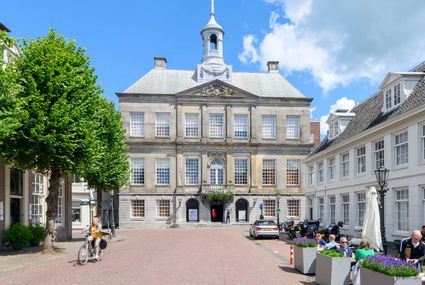
Muiden
The best way to experience the convivial fortified city of Muiden is to take a stroll by the harbour with its many traditional sailing boats or to settle down at an outdoor café with a view of t...
Muiden
The best way to experience the convivial fortified city of Muiden is to take a stroll by the harbour with its many traditional sailing boats or to settle down at an outdoor café with a view of the Groote Zeesluis. Alternatively, you can explore the fort island of Pampus or visit the centuries-old Amsterdam Castle Muiderslot. Along with Naarden and Weesp, the fortified city of Muiden played an important role. Muiden closed off the Zeedijk dyke and protected the sea and inundation locks of the Vecht. Fort C, also popularly known as ‘the Muizenfort’, has a small museum about the New Dutch Waterline and the Defence Line of Amsterdam.
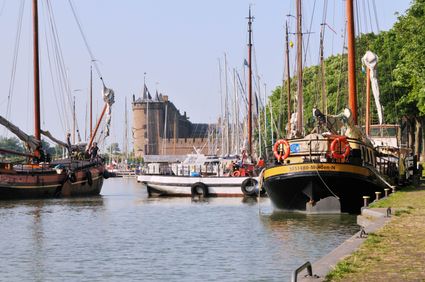
Muideslot
Amsterdam Castle Muiderslot is one of the Netherlands’ best-known castles. Built on the orders of Floris V, Count of Holland, shortly after 1285, the square castle with its characteristic round...
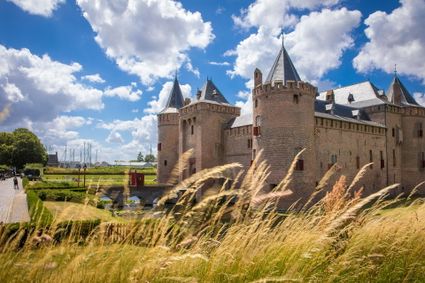
Naarden Vesting
Naarden-Vesting is the oldest fortified city in the Gooi and one of the best-preserved cultural monuments in the country. If you would like to find out more about its turbulent history, a visit...
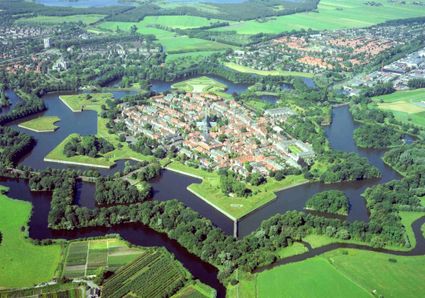
Dutch Fortress Museum
Naarden-Vesting’s barracks and grassy ramparts serve as reminders of its eventful past, when it served as a military defence post to protect the access road to the wealthy district of Holland an...
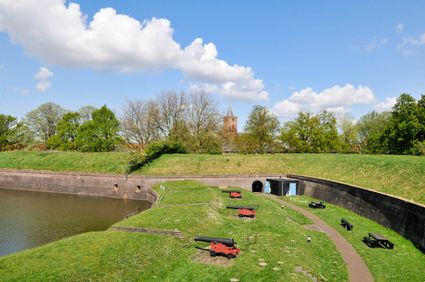
Batteries on the Karnemelksloot
Just south-west of Naarden-Vesting are the twin batteries on the Karnemelksloot. These forts are not accessible to the public: one of the two batteries is home to a Scout troop, while the other...
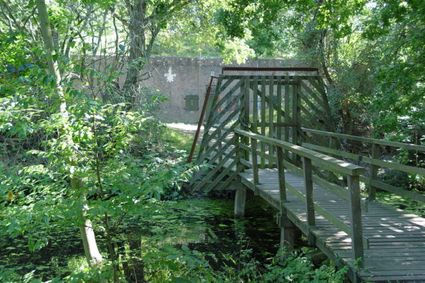
Fort Kijkuit
Cross the water and explore the grounds of the fort! Visit the former gunpowder magazine to find out more about the fort’s history and the exceptional surrounding nature.The former gunpowd...
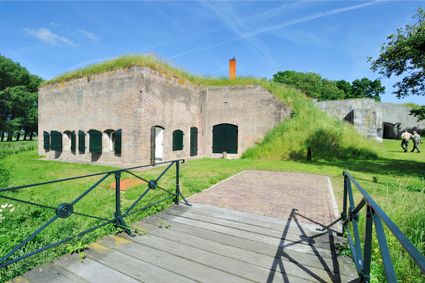
Fortress Nieuwersluis
Fort Nieuwersluis is situated in the heart of the Netherlands, between Loenen and Breukelen. In the 19th century, this fortress was part of the New Dutch Waterline, an ingenious series of water-based defences. Today, bats spend the winter in its central t
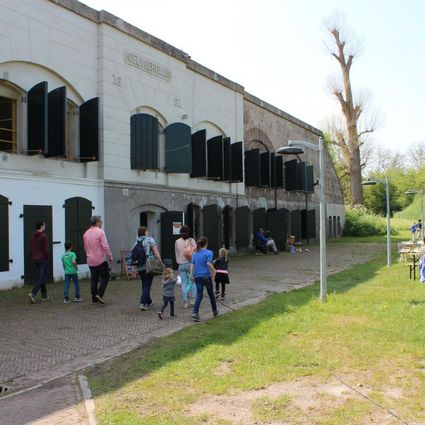
Fortress Nieuwersluis
Fortress Nieuwersluis
Fort Nieuwersluis is situated in the heart of the Netherlands, between Loenen and Breukelen. In the 19th century, this fortress was part of the New Dutch Waterline, an ingenious series of water-based defences. Today, bats spend the winter in its central t
Fort in de Botshol
Fort in de Botshol is the only fort of the Defence Line of Amsterdam of which the earthen ramparts are still intact. During World War II, people in hiding found safe shelter in the storage depot...
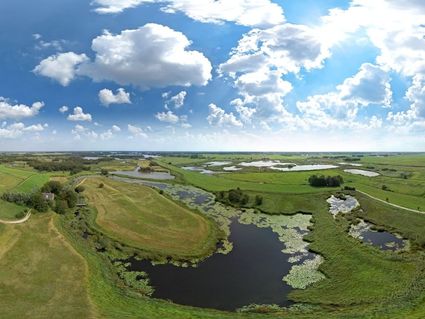
Fort Nigtevecht
Fort Nigtevecht lies hidden in the landscape, next to a quiet road running along the Amsterdam-Rhine Canal. It can be found in a unique spot between Abcoude and Nigtevecht, surrounded by nature....
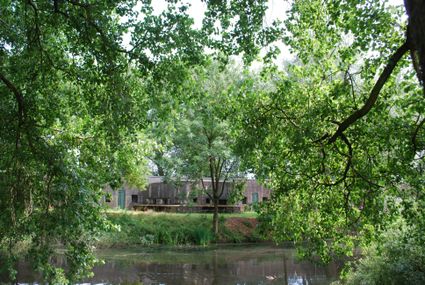
Fort Uitermeer
Fort Uitermeer occupies a prime strategic position in a bend of the river Vecht. If it could speak, it would tell many a tale about how the Vecht valley was formed, the clean waters of the Vecht...
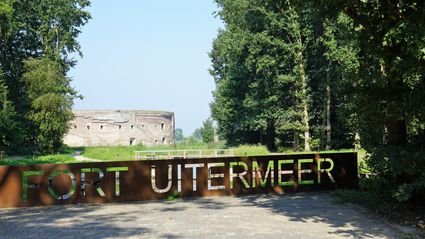
Fort on the Ossenmarkt
Fort on the Ossenmarkt, in the fortified city of Weesp, was built to defend both banks of the river Vecht, the sluices and the Amsterdam-Hilversum railway line that crosses the river here. The t...
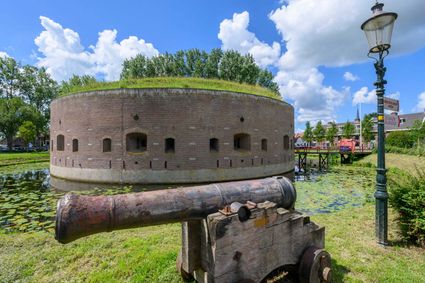
- 44
- 16
- 17
- 18
- 33
- 34
- 34
- 37
- 10
- 08
- 38
- 39
- 01
- 02
- 03
- 04
- 04
- 25
- 02
- 84
- 3
- 05
- 07
- 06
- 62
- 60
- 24
- 40
- 58
- 53
- 51
- 52
- 39
- 01
- 49
- 50
- 29
- 28
- 27
- 26
- 83
- 74
- 42
- 46
- 47
- 47
- 45
- 44

